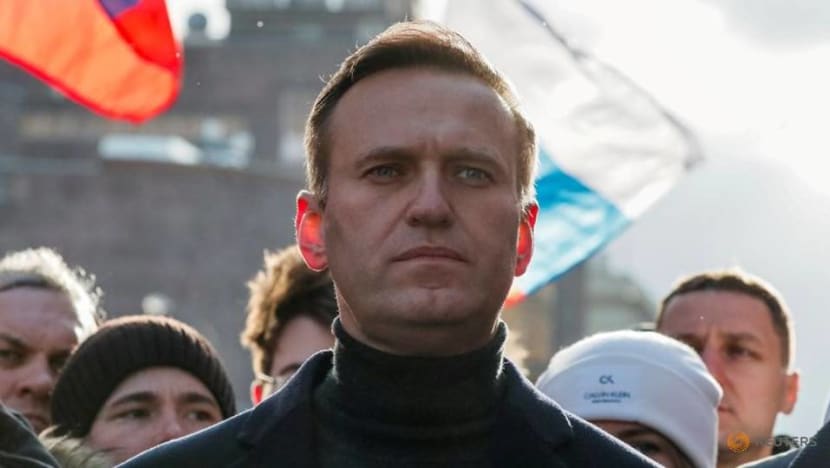EU considers Russia sanctions over Navalny poisoning

Russian opposition politician Alexei Navalny takes part in a rally to mark the 5th anniversary of opposition politician Boris Nemtsov's murder and to protest against proposed amendments to the country's constitution, in Moscow on Feb 29, 2020. (File photo: Reuters/Shamil Zhumatov)
BRUSSELS: European Union foreign ministers were weighing on Monday (Oct 12) whether to impose sanctions on Russian officials and organisations blamed for the poisoning of opposition leader Alexei Navalny with a Soviet-era nerve agent.
The ministers, meeting in Luxembourg, are considering a proposal from France and Germany to freeze the assets of those suspected of involvement and ban them from travelling in Europe under sanctions to combat the use and spread of chemical weapons.
Navalny, an anti-corruption investigator and major political opponent of Russian President Vladimir Putin, fell ill on Aug 20 during a domestic flight in Russia.
He was flown to Germany for treatment two days later and is still recovering there.
Last week, tests conducted at labs designated by the Organisation for the Prohibition of Chemical Weapons (OPCW) confirmed that Navalny was the victim of a Novichok nerve agent.
READ: France and Germany ready to 'play hardball' with Russia
German Foreign Minister Heiko Maas said on Monday that given the OPCW’s findings, it is now “objectively clear that this is a breach of the Chemical Weapons Convention, one that cannot remain without consequences”.
In a statement last Friday, France and Germany said that, despite repeated calls, Russia has provided “no credible explanation” for what happened and that “there is no other plausible explanation for Mr Navalny’s poisoning than a Russian involvement and responsibility”.
They said they would push for EU sanctions to “target individuals deemed responsible for this crime and breach of international norms, based on their official function, as well as an entity involved in the Novichok program”.
Finnish Foreign Minister Pekka Haavisto said on Monday that it is important to persuade Moscow to fully cooperate in any investigation of the poisoning.
“The law has been broken by producing a substance like Novichok and the law has been broken by using it on Russian territory,” he said.
READ: Russia's Navalny accuses Putin of being behind poisoning
In parallel, the EU agreed on Monday to extend until Oct 16, 2021, the system allowing the 27-nation bloc to impose sanctions on people and organisations involved in the development and use of chemical weapons.
Nine people are already on this list - four accused of involvement in the Novichok attack in Salisbury, England, two years ago and five linked to the Syrian regime’s use of chemical weapons.
One organisation - Syria’s Scientific Studies and Research Center - is also subject to sanctions.
The ministers will also discuss whether to add more names to a list of Belarus officials hit by sanctions over the conduct of that country's presidential elections in August and the security crackdown that followed the polls, whose results the EU has refused to recognise.












